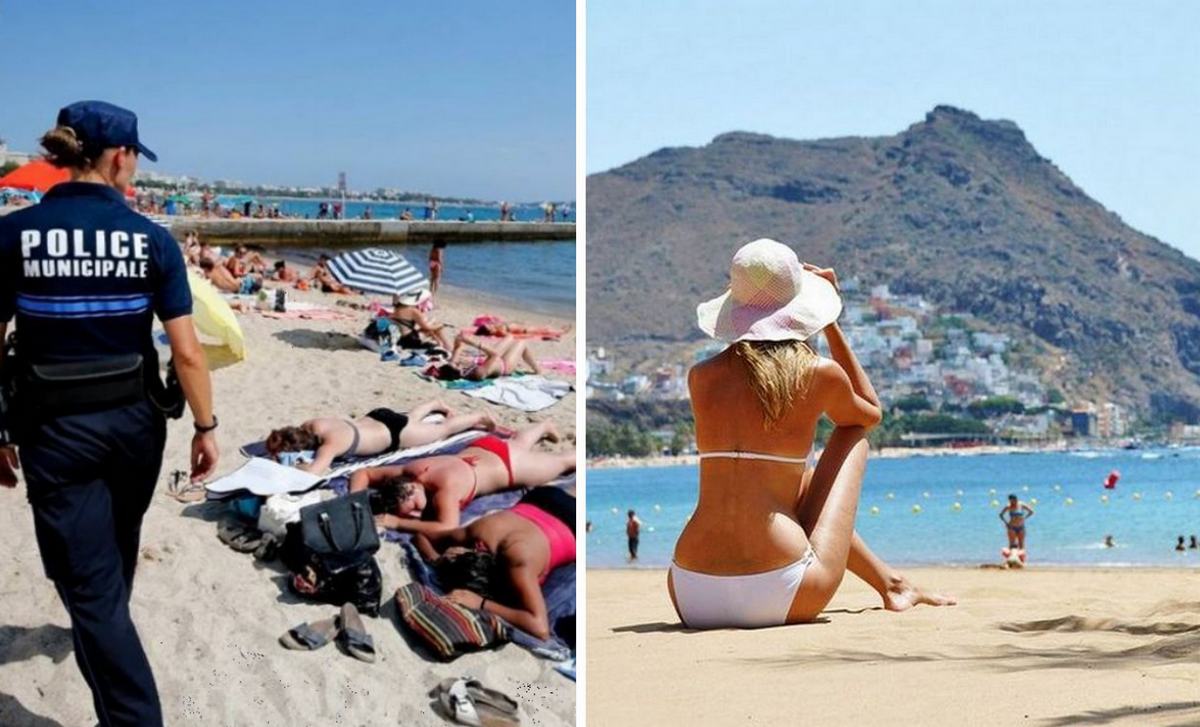A wave of protests against arbitrariness – the illegal seizure of coastal territories – swept popular Greece, attracting the attention of residents and foreign tourists. The “Towel Movement” launched on the island of Paros is calling for the “cleaning” of public beaches occupied by greedy owners of beach bars and cafes, Greek media reported.
The problem of illegal encroachment on beaches in Greece has reached such a scale that public activists have taken to the streets to support the fight to preserve access to the municipal coastal strip. As the activists noted, their main protest is related to the attempts of public catering outlets to grab the shorelines and line them up with sunbeds and umbrellas to get maximum profit from vacationers. However, according to Greek law, private beaches are illegal. Until recently, tourists put up with the state of affairs and arranged themselves on patches of beaches next to deckchairs. However, patience has come to an end.
“We faced lawlessness, which turned out to be the subject of mass protests,” one of the activists emphasized, speaking at a rally on the island of Paros. The towel movement seeks to return beaches to the community by limiting the impact of businesses on public space.
The initiative of the activists began to produce results. The towel movement, which originated in June on the island of Rhodes, quickly spread to the island of Paros, and then to other resort regions of the country. The spread of the movement throughout the country shows growing dissatisfaction with the illegal rental of beach areas.
At the same time, the organizers of the action clarified that their statements and claims are not groundless. Islanders measured and documented the area of beaches occupied by umbrellas and deck chairs and were extremely surprised. Interesting details were revealed. It turned out that there was practically no place left for independent recreation. For example, about 80% of the Cretan Falasarna beach, which is considered one of the most beautiful in the world and is part of the Natura 2000 network of protected areas, is actually occupied by private cafes, restaurants and bars that operate without permits, but were charged daily from tourists for sunbeds and umbrellas a fee of up to 60 euros for an umbrella and two chairs, and for “VIP-zones” they asked for 120 euros in general. Concerned foreign tourists also joined the movement to fight against the distribution of rental equipment.
Faced with public pressure, the Greek government intervened in the issue of illegal beach occupation, promising that beach rules would be strictly enforced from now on. So, according to Finance Minister Kostis Hatzidakis, the changes have already begun. Beaches throughout the country began to be inspected more strictly and to stop the illegal occupation of coastal territory. However, the question is not yet resolved: time will tell whether the united tourists will be able to return the coastal areas to the hands of vacationers and restore free access to the beaches, which have long been part of the culture and traditions of Greece.

